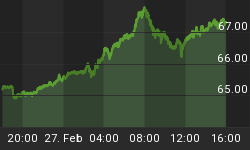Mexican oil is hemorrhaging money thanks to gasoline-guzzling cartels, seafaring pirates, and widespread collusion within their own ranks. While this is nothing new for the oil-rich but security-poor nation, the problem is now worse than ever, with state-run Pemex losing over a billion and a half dollars a year to thieves.
This month, Pemex released a report including the staggering figure of $1.6 billion--the amount of money that they are losing annually to fuel theft. In the first two months of this year alone, fuel thieves (locally known as huachicoleros) drilled 2,274 illegal taps in Pemex pipelines. This is a staggering 38 percent increase from the same period in 2017, and, even more incredibly, 352 percent more than the same period just four years ago.
Reuters has reported that from 2009 to 2016, thieves had tapped pipelines every 1.4kms on average along Pemex’s aging network of around 14,000 kms total. The network, lacking investment and upkeep, is becoming an ever-easier target as it ages. Thanks to the grand sprawl of the system, it’s virtually impossible to establish wide-scale surveillance, and law enforcements’ attempts to crack down on huachicoleros in the past has led to bloody outbursts and civilian deaths.
While locals, and in some cases entire towns, are guilty of illegal taps, thriving black markets and even a counter-cultural reverence for stolen gasoline, organized crime is far and away the largest perpetrator of fuel theft in Mexico, and the issue reaches to well within Pemex’s own ranks.
The company has already fired 100 workers for complicity in fuel theft schemes and scores more are currently under investigation. In the last few years, at least 120 works have been arrested for complicity with organized crime and sharing information about the location of pipelines. Related:Tech Giants Rally Ahead Of Earnings Reports
Some politicians have also been swept up in fuel-stealing scandals. Last June, a mayor from the state of Puebla, one of the most notorious hotspots for huachicoleros, was arrested for trading in stolen gas. This followed the firing of the head of the Puebla State Police and his chief of operations, who were caught protecting traffickers as they siphoned gas from a tapped Pemex pipeline.
Drug cartels have gone to extreme lengths to secure informants and other sources of intel from within Pemex, leading some employees to go as far as to seek asylum outside of the country rather than face the impossible decision of working with the cartel or facing their wrath. For the cartels, gasoline is a golden opportunity. Compared to drug running, black-market gasoline is a lucrative and relatively low-risk industry, and their thirst for fuel shows no sign of stopping.
In addition to the large-scale problem of organized crime within the country, another part of Mexico’s very public corruption woes are tied to the Brazilian Odebrecht scandal. 23 of the Pemex employees under investigation are being scrutinized for possible involvement in the far-reaching corruption that allowed the Brazilian firm to secure massive contracts through bribes.
Now, in addition to the ever-increasing problem of the huachicoleros, Mexico is also contending with pirates roaming the Gulf of Mexico looking to score from some of the nation’s bountiful oil reserves.
Related: Could Tesla Be Profitable By The End Of 2018?
According to the Navy Secretariat (Semar), criminals masquerading as fisherman made at minimum 21 attempts to board various Pemex oil platforms and ships at offshore drilling sites in the Gulf of Mexico between December 2016 and January 2018. Mexican newspaper Milenio has reported that attacks in the Bay of Campeche have resulted in successful theft operations from 11 oil platforms and 10 vessels.
Mexico’s growing security woes, its connection to high-profile corruption scandals like Odebrecht, and its uncertain political future form a nasty combination that’s causing many investors to get cold feet. After Mexico opened up their vast oil reserves to foreign interests for the first time in nearly 80 years, many supermajors were eager to get a foot in the door, but now some companies are hedging their bets in the increasingly volatile market. Mexico desperately needs the investment, but can they promise strong returns in such an uncertain climate?
By Haley Zaremba for Oilprice.com
More Top Reads From Safehaven.com:
















